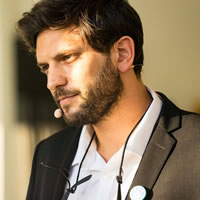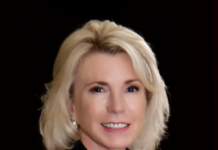Or Retzkin
Co-Founder & CEO
Health Tech, Entrepreneur
Tel Aviv, Israel
Listen to Or’s Podcast!
Or Retzkin is the Co-Founder and CEO of EyeControl. Or lost his grandmother, Julie, to ALS. The sadness and frustration experienced from a loved one losing their ability to communicate gave him a deep understanding of an existing problem and a clear vision for an innovative solution.
EyeControl was established in 2016 by co-founders, who all have personal connections to Locked-in individuals. Or joined together with Itai Kornberg, CTO and Co-founder, and Shay Rishoni (1966-2018), Co-founder and ALS patient, on a mission to give the Locked-in community the ability to communicate.
Or is a member of the 8400 HealthTech Leadership program and was an awardee of the 2021 Peres Heritage Initiative. He holds a joint BSc degree in Physics and Accounting from Tel Aviv University; and, went on to graduate with an additional MSc in Finance.
Prior to founding EyeControl, Or Retzkin worked at PricewaterhouseCoopers (PwC) Israel, in the high-tech and industry audit departments. He continues to lecture in Tel Aviv University’s Accounting Department, and volunteers as Alumni Director at the 8200 Impact Accelerator.
The LinkedIn page for EyeControl states:
EyeControl is a pioneer of medical technology, specializing in innovative communication solutions that address unmet healthcare needs. We implement disruptive AI-technologies that connect people and bridge information barriers, facilitating better medical care and decision-making. Our eye-tracking wearable and smart platforms empower communication between patients who cannot speak, their families, and medical teams.
EyeControl-Med is a communication solution for healthcare facilities, enabling bi-directional remote connectivity between the patient’s headset, nurse work station, and loved ones from afar. It drives improved clinical outcomes via real-time analytics, and is revolutionizing the industry standard for medical communication. EyeControl–Home is a comprehensive communication solution for patients transitioning from medical facilities to remote home care and other Locked-in patients, who cannot speak. It improves quality of life by providing round-the-clock connectivity and freedom of expression.











